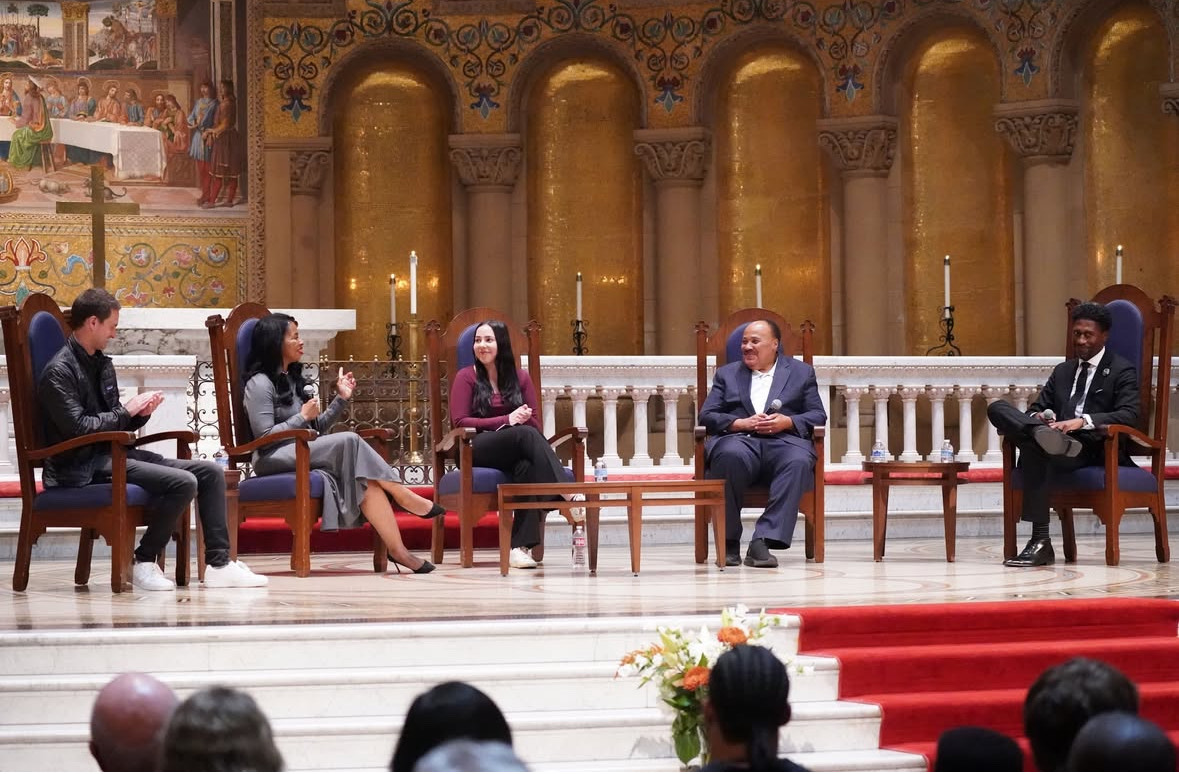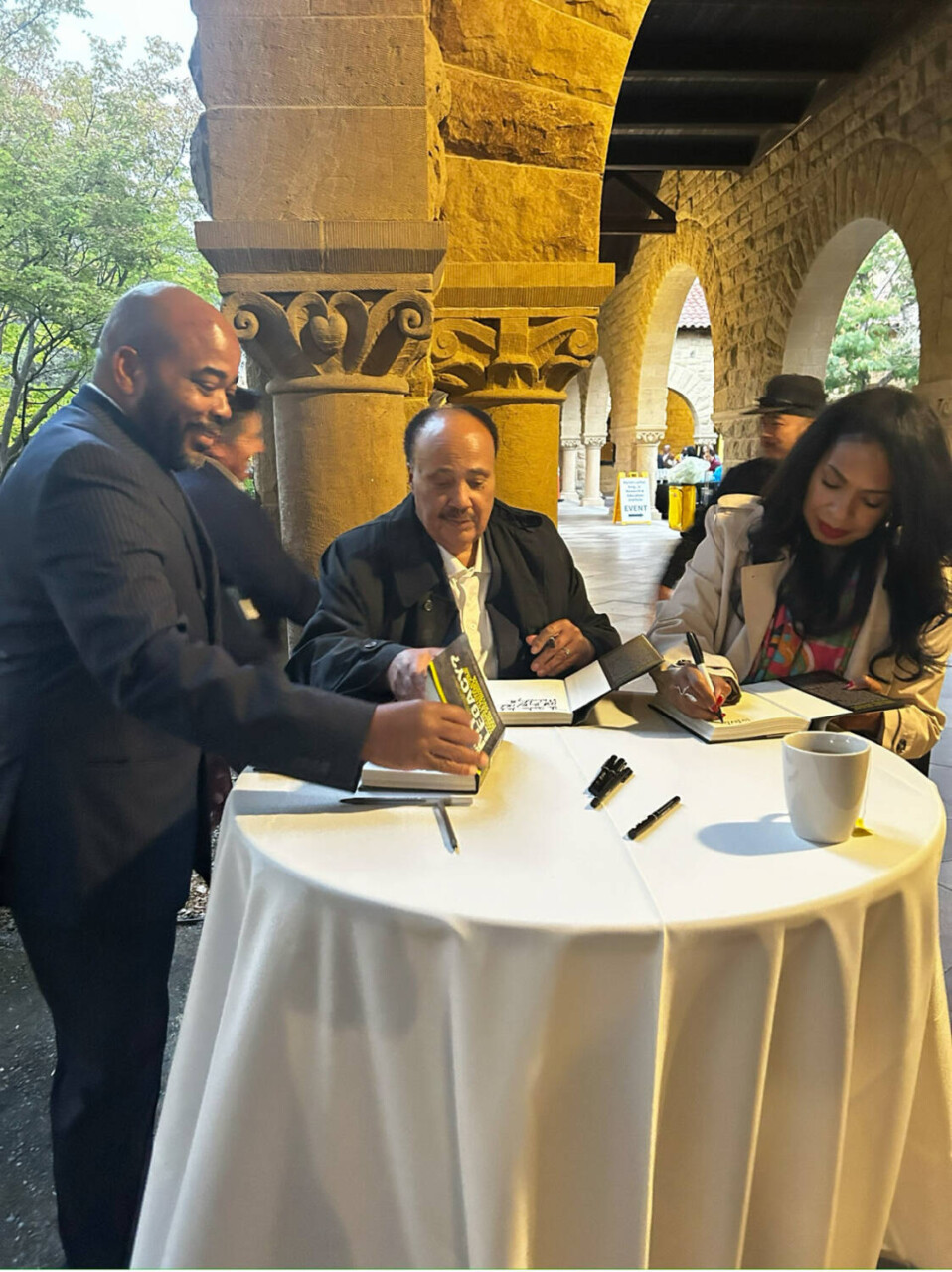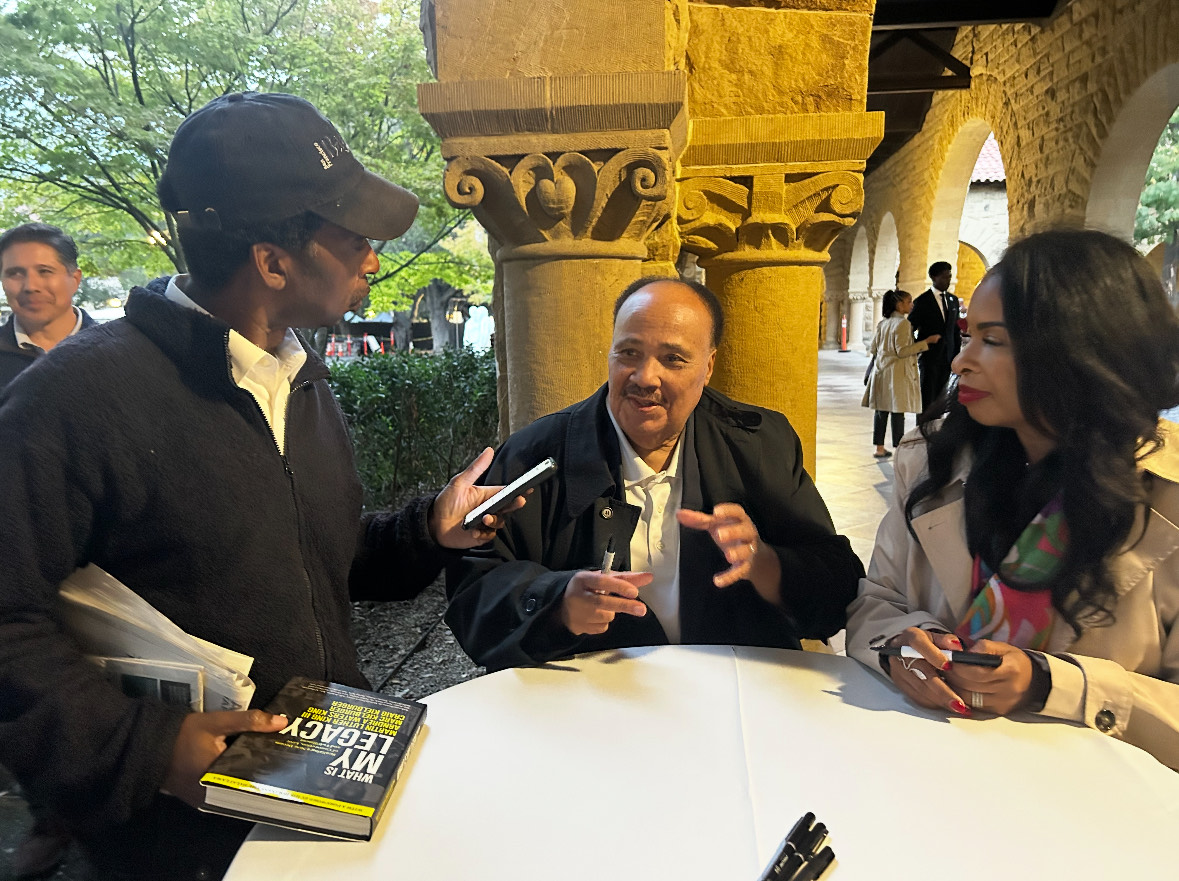
By Kevin Epps
Stanford University celebrated the grand opening of the Martin Luther King Jr. Research and Education Institute on Monday October 14, unveiling a new center dedicated to preserving and advancing Dr. King’s enduring legacy of justice, equality, and humanity.
Held in the heart of Stanford’s Main Quad, the event drew a standing-room-only crowd — students, scholars, community leaders, and families filling the new space beyond capacity. The moment was both a celebration and a call to action.
Martin Luther King III Call For Unity
“This is a very, very challenging time in the world,” said Martin Luther King III, the son of the civil rights leader. “If we’re ever going to realize the dream of my dad, we’ve got to learn how to stop turning on each other. This university — and this nation — has got to come together.”
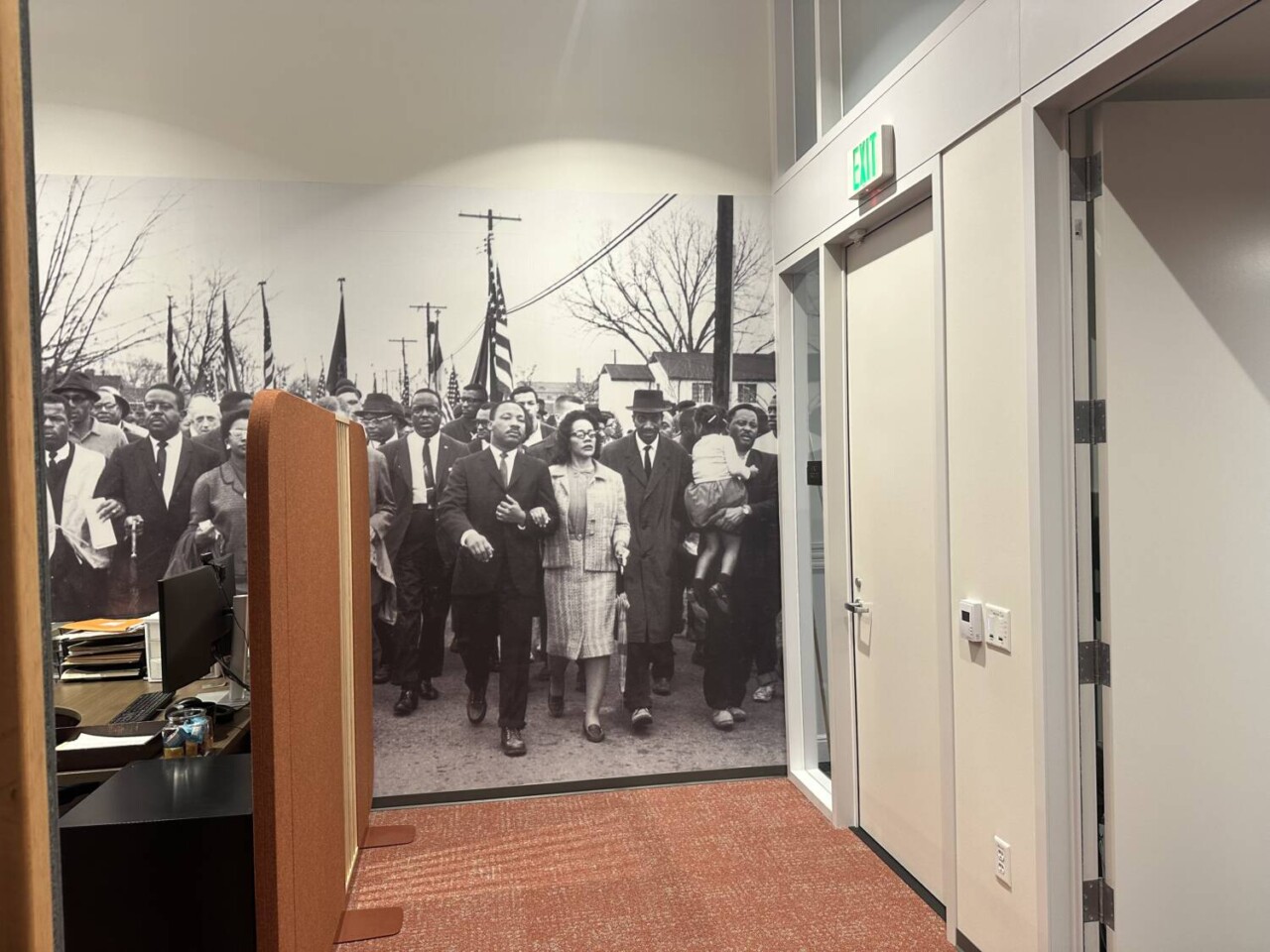
The new institute, located in Building 370, will serve as a scholarly and experiential space for research, reflection, and community engagement. One of its primary goals is to digitize the King Papers, which span decades of sermons, letters, and speeches — ensuring global access to Dr. King’s words at a time when, as Martin noted, “history itself is being challenged, removed, or rewritten.”
A Community Collaboration
The opening celebration began in Memorial Church, featuring a panel with Lerone A. Martin, the Martin Luther King Jr. Centennial Professor and director of the institute; Martin Luther King III and Arndrea Waters King, president of the Drum Major Institute; Marina Limon ’25; and Evan Spiegel, co-founder of Snapchat and institute donor. The panel explored how King’s legacy continues to inspire moral leadership and civic responsibility — especially among young people.
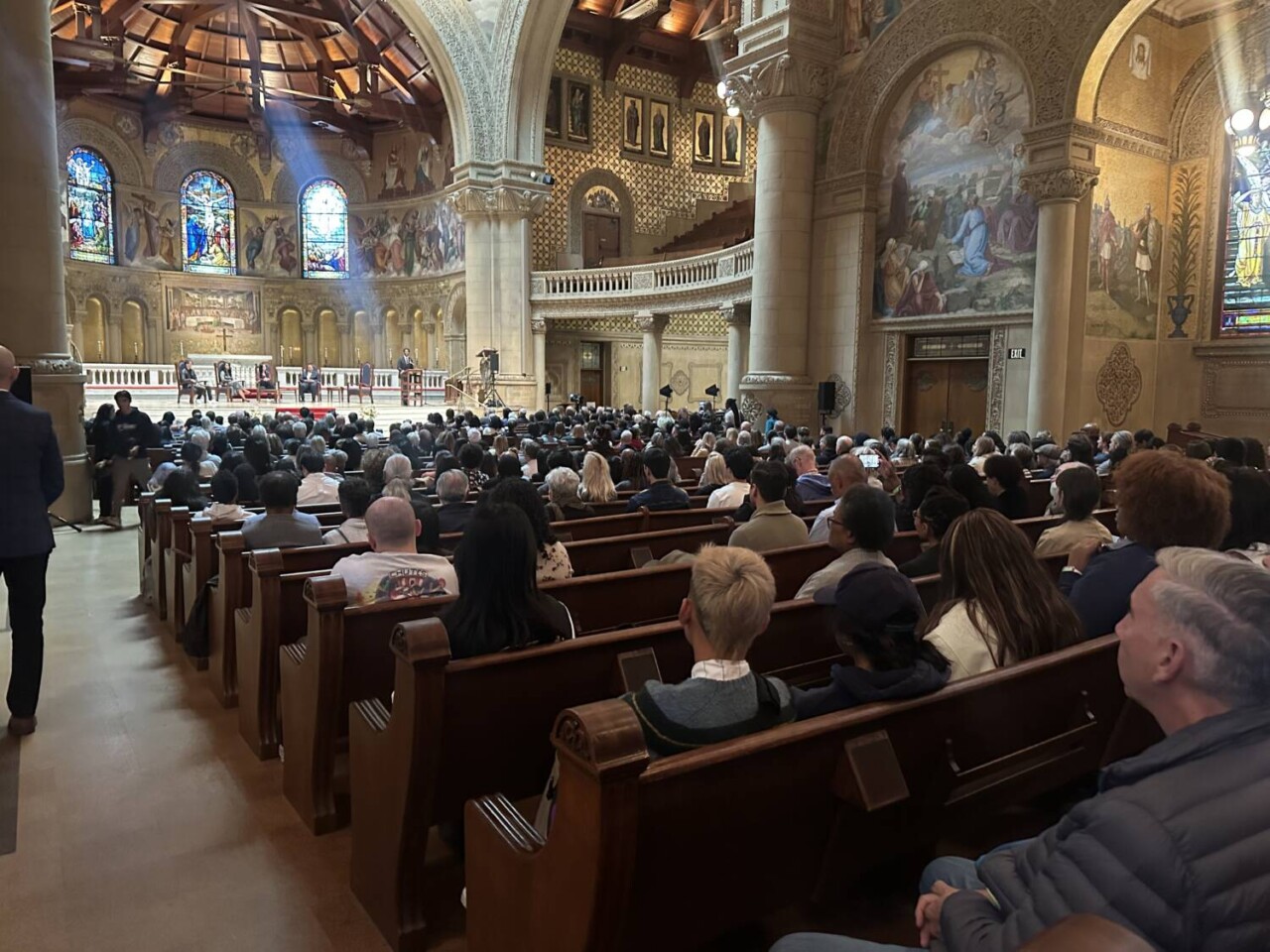
“We’re excited to have a new home on the main quad at Stanford University and all that it signifies,” said Professor Lerone Martin. “We look forward to using our resources to help build a better new world.”
The institute’s design honors King’s roots and the people who sustained the Civil Rights Movement. The flooring in its kitchen and bathrooms echoes the interior of Ebenezer Baptist Church in Atlanta, where Dr. King once preached. A dedicated room pays tribute to the women of the movement, including Coretta Scott King, remembered not only as Dr. King’s partner, but as a visionary leader in her own right.
For longtime supporters like Tracy Ramirez, the new institute represents both progress and preservation. “I used to be right next door to the original King space in Spruce Hall,” Ramirez recalled. “I know how hard these folks are working. A lot of our history has been hidden or obscured, and I’m proud of what they’re doing to keep Dr. King’s legacy is alive for the generations coming behind us.”
Inspired Action
The event concluded with remarks from Stanford President Jonathan Levin, who praised the King family and emphasized the institute’s role in linking scholarship, activism, and moral courage.
“This institute is more than a building,” Levin said. “It’s a living reminder that scholarship can inspire action — and that the work of justice is never done.”
At a time of division and misinformation, The Martin Luther King Jr. Research and Education Institute stands as both a sanctuary and a call to conscience — a space where the past informs the present, and where Dr. King’s vision for a “beloved community” continues to light the way forward.
Kevin Epps is a Dad, award-winning filmmaker, community activist, author, executive editor of the SF Bay View National Black Newspaper and a board member for the SF Bay View Foundation. Reach him at kevin@sfbayview.com or on Instagram: kevinepps1




